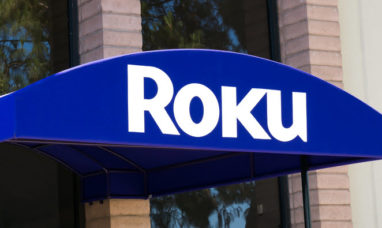Travelzoo (NASDAQ:TZOO) is an online publisher that offers deals on travel and tourism to its readers. The company reaches out to customers through several websites, a newsletter, and smartphone apps. This service, charges airlines, hotels, and travel agencies.
Before the pandemic, the company’s sales were going down, and they haven’t come back as quickly as other companies in the same field. Even though recent operating income numbers look good at first glance, they are skewed by one-time expenses, without which the company is just breaking even.
Also, the company sold private shares to its biggest shareholder, which allowed it to buy a metaverse travel agency for $10 million. This seems like a lot of money.
Because of these things, I don’t think now is a good time to buy TZOO stock.
Business
TZOO runs three business models that are based on travel or experience deals.
The most popular are Travelzoo.com, its Android and Apple apps, and the Travelzoo newsletter. These websites and apps give their users free deals on travel, vacations, and other things to do. Travelzoo is a website where airlines, hotels, and travel agencies post ads and pay TZOO in different ways (impressions, clicks, conversions, etc.). Travelzoo.com is based in the U.S. and Europe, and licensees in Japan, Australia, and other parts of Asia pay it (relatively small) royalties.
The Travelzoo website also has deals and things to do in the area. In this model, local businesses like restaurants, museums, spas, etc. pay Travelzoo either to advertise or to get a cut of vouchers sold.
Lastly, TZOO owns jacksflightclub.com, a website in the UK that offers cheap flights to people who pay to join. The website is based on a freemium model, and the company does not talk about its direct relationships with airlines. Before the pandemic, JFC was not part of the business because it was bought in 2020.
The business was getting worse before the pandemic. During the pandemic, most tourism and travel companies lost money, and many of them lost money again in 2021. But TZOO’s business model had been falling apart for a long time before the pandemic. As you can see below, the company’s operating profits peaked around 2012 and its sales did the same in 2014. The Asian part of the company was always losing money, so it switched to a system based on royalties, which now brings in almost no royalties.
Competition From Aggregators and Other Options
I think that hotels and flight search engines like Booking, Trivago, and Skyscanner have hurt TZOO’s main way of making money. Instead of sending customers specific deals, these sites let them search for the best prices whenever and wherever they want. TZOO also says that other ways to stay, like Airbnb apartments, take away some of their business because the owners don’t advertise in TZOO.
Travelzoo.com (both for travelers and locals) doesn’t have much content that isn’t based on deals, but it charges a lot for it. Less than 30% of the web’s content is in its blog section. So, the company shouldn’t spend a lot of money on making content. Instead, it should spend money on advertising to bring in and keep customers. In FY21 and FY20, the company says it spent about $3 million on advertising and getting new customers.
But the company’s SG&A costs are much more than $3 million, which sets a high bar for how big it has to get for the business to be profitable. Again, the company doesn’t make a lot of content other than ads. If you go to its website, you’ll see what I think is also a low investment in web design.
Recent Developments
After the pandemic, it’s not fair to judge TZOO based on its performance in 2020 and 2021, since all companies in the travel industry saw their sales drop.
But even though there are many examples of quick recoveries from the low points before the pandemic, TZOO has been slow to bring in more money. Different parts of the tourism industry are shown in the examples below: aggregators, hotels, cruises, and airlines.
Still Not Making Money on a Regular Basis
In the 9M22 period, TZOO had an operating income of $6.5 million. But most of that money came from things that didn’t happen every time.
One of the items is a return of $3.5 million from voucher cancellations (the company records a reserve for vouchers that customers may cancel before using the service). Another $2.5 million comes from a $1.7 million grant from the German government and the sale of shares in a German company.
If you take out these things, the operating income from regular sources is almost nothing.
A questionable purchase: In November, TZOO announced that it had reached an agreement with its founder and controlling shareholder to give him 3.4 million shares, or 21% of the total number of shares after issuance. At the time, these shares were worth $18.7 million. The problem is that the controlling shareholder would pay $2 million in cash, $8 million in notes due in 2023, and the rest with all of MTE’s stock.
MTE is a company that was started by the controlling shareholder. It makes no money outside of Travelzoo and, according to the company’s report, has “significant operating losses.” The company is a travel agency for the metaverse, which is a new business model.
Still, it seemed like $8 million was paid for MTE. The market didn’t like this news, so on November 25, 2022, right after it was announced, the stock went down quickly.
After the stock lost value, the agreement was re-priced at $15 million, with $1 million in cash, $4.7 million in notes, and $9 million in MTE stock.
Option repricing: When the stock price of the company dropped while the pandemic was in full swing, investors lost a lot of money. Normally, managers would have had the same fate as shareholders.
According to the company’s 10-K for FY21, the CEO’s options were repriced so that the stock price on March 30, 2020, was used as the strike price. According to the company’s proxy statement, TZOO had to pay $6 million to make up for this. The controlling shareholder and founder of the company is the CEO’s brother.
Upside Risks
In 2020 and 2021, the market was eager to put money into companies that worked with digital assets and the metaverse. This hunger has mostly gone away in the current situation, but it could come back. If so, TZOO will be in a good place to take advantage of this trend.
Tax protection from MTE: When MTE buys TZOO, TZOO also gets tax loss carryforwards, which could help it protect future income. The amount of these carryforwards was not made public, but the company said it was “significant.”
The company’s operating income went up between 2008 and 2012, even though this was during the Great Financial Crisis (GFC) recession, which is counterintuitive. But a bad economy could be good for TZOO’s business because travelers look for better deals, even if it means giving up some freedom.
Conclusion
Before the pandemic, TZOO’s business was going down. After the pandemic, the company hasn’t been able to increase sales or become operationally profitable on a regular basis, even though there are many examples of the tourism industry getting back on its feet.
Also, the cost structure of the company seems too big for the operations that are needed to run a business like TZOO. Ten times more money is spent on SG&A than on advertising, even though the company doesn’t make much content other than deals for its customers. This makes it harder to turn a profit.
Lastly, the company’s most recent purchase is questionable from a business point of view, and managers have not been as affected by the pandemic as shareholders have been.
With a market value of $60 million and very little operational income, TZOO stock seems like an easy pass at the moment.
Featured Image: Pexels @ Asad Photo Maldives









